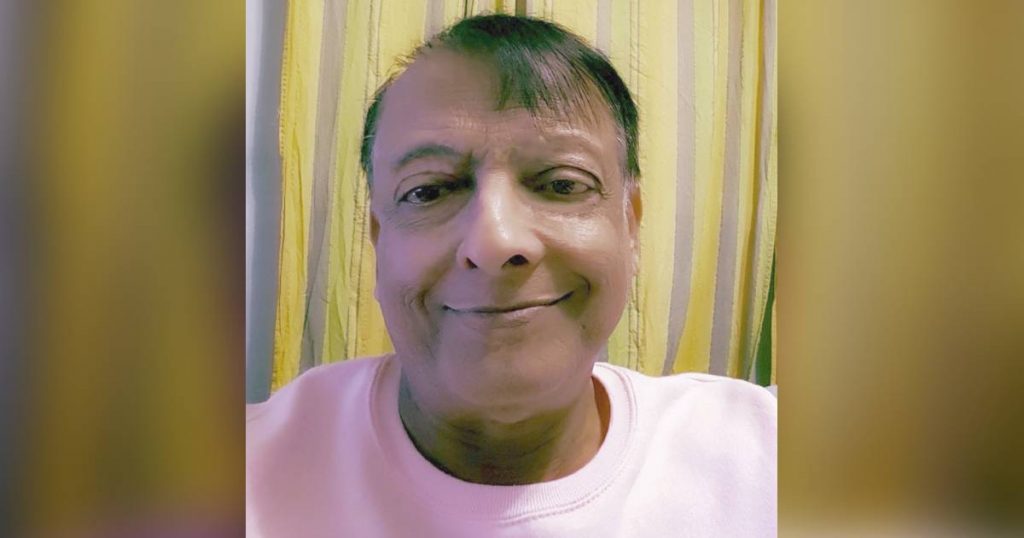At the end of the sixties, I was one of the early Trinidad graduates of the University of the West Indies in St Augustine and Jamaica and so was Haripersad Harikissoon, whom I didn’t know at the time.
Some of us those Trinidad graduates looked around and found we didn’t like what we were seeing with the Indians and Hindus of Trinidad.
Politically the Indians had been beaten into the ground since 1956 when the PNM representing mostly the black people had won. The Indian party the DLP was in shambles and would soon die in 1971. People were ashamed to be Indians and were abandoning our cultural and social heritage. There was nobody speaking up for Indians and it looked like Indians were headed for extinction.
Trinidad Hindus was in an even worse position. Missionaries were converting our people left and right. The Maha Sabha was doing little, other Hindu groups were dormant or dying, there was no leadership for the future among Hindus. We had lost most of the young people.
A few of us decided to do something about this dreadful situation.
I took the road of Indian revival, joined the Indian resistance group Mukdar, then the similar group Indian Revival and Reform Association, and the Indian Arrival Day Committee which made Indian Arrival Day a national festival.
Hari took the road of Hindu revival. Soon we heard he was doing good things with the young people in the Rio Claro Secondary School where he was posted, and in his home village of Endeavour. He was an early supporter of my Mukdar and Indian Revival and Reform Association.
Later he moved to St Augustine Secondary School and continued the work of organizing Hindu students and events. I was living in Curepe at the time and supported his work with Hindus at the school. He was my kind of new Hindu.
Hari was the key organizer of a new group of young people called the Hindu Jaawan Sangh, a group I found had the kind of outlook I admired. Instead of complaining and whining, the Jawaan Sangh decided to break new ground and take pro-active moves.
One of his early successes was to multiply the celebration of Phagwa all over the country and away from the sole event of previous years at the Aranguez Savannah. This incredible expansion was done by the Jawaan Sangh with no resources and no backers, no Hindu temples at all, something the Maha Sabha with its dozens of temples and schools had never dreamed of doing.
Hariji’s group also led the way in organizing Hindu student groups all over the country in places where none had existed before. They set up the first international Hindu convention, which I attended. They were working nonstop stimulating and forming Hindu groups all over Trinidad.
I think it’s a fair assessment that the Hindu Jawaan Sangh was the key element in the Hindu revival of the seventies and that Hariji was the linchpin of the Hindu Jawaan Sangh.
In the early eighties with Indian Arrival Day doing great things and an Indian revival underway, Hariji invited me to Chaguanas to a gathering of young Hindu activists. I didn’t want to go as I was not really a Hindu activist, but he insisted, saying he wanted only people with a good track record of achievement as I could claim.
That was the formation meeting of the Hindu Seva Sangh, about which much will be said by others. I think it was Hari himself who nominated me as secretary and how could I decline?
With Hariji as the president, myself as secretary and an unrivalled cadre of first-class Hindu firebrands we created the greatest Hindu youth organization Trinidad has ever seen. The youth camps, the sankirtans, the shakas, the creation of dozens of young leaders, the Indian Arrival Day landings, the North, South and Central zones, the infectious enthusiasm of our members was something Trinidad had never seen before. Hariji and the team took me on a wild ride that made me a Hindu for the first time in this life instead of a pretend Hindu.
Trinidad Hindus is blessed to have had a man like Hariji walking the walk of selfless service and seva.
Now that I live in far away Canada, I find I can do no better than walk in those footsteps of Hindu revival as well as my own of Indian revival. And what do you know, both are happening right here in Toronto, Canada.
By Ramdath Jagessar
